Latest
Eliminating FGM in Nigeria crucial to achieving SDGs — Tallen
Published
4 years agoon
By
Seun Owope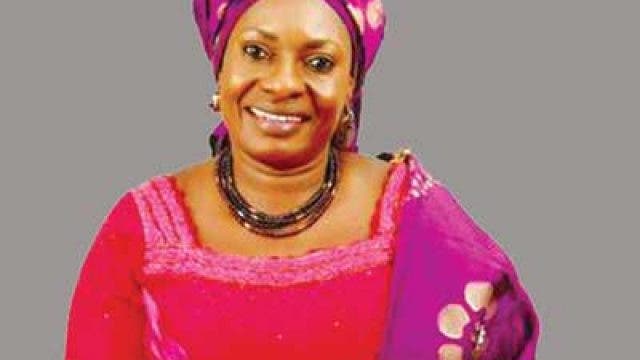
The Minister of Women Affairs, Mrs Pauline Tallen, says eliminating Female Genital Mutilation (FGM) in Nigeria by 2030 is crucial to realising many Sustainable Development Goals (SDGs).
She said this on Thursday in Abuja at the inauguration of the “Movement for Good to End Female Genital Mutilation” in Nigeria.
The movement is a collaboration between the Ministry of Women Affairs, UN Children’s Fund (UNICEF), UN Population Fund (UNFPA) and other development partners to end FGM in the country.
Tallen said that the SDG targets on health and well-being, quality education, gender equality, decent work and economic growth were being tthreatened by continuous practice of FGM.
She added that “the practice denies girls and women the right to equal education opportunities for decent work and their health, particularly sexual and reproductive health.
“FGM is a traditional practice inflicted on girls and women worldwide, and it is widely recognised as a violation of human right, which is deeply rooted in cultural beliefs and perceptions of advocates and generations.
“The procedure involves the partial or total remote removal of the external female genital, causing injury to the organs.”
According to her, FGM is seen as a rite of passage of a girl-child to womanhood, usually encouraged by family members in the fear and belief of social and societal sanctions.
The minister said “I would like to state firmly that the procedure of FGM has no health benefits for girls and women at all, instead, it destroys the psyche of the child and the woman.
“During the procedure, the mental and psychological agony attached is deemed the most serious complication because the problem does not manifest outwardly for help to be offered.”
She, however, said that in addition to the provision of the law against the practice, the Federal Government and partners were working to ensure an end to the menace by 2030, in line with the SDGs.
Tallen added that “we are working with UNFPA to establish surveillance system and mobilise FGM champions to deliver door-to-door household discussions with community groups in Oyo and Osun states.
“This year, we hope to scale up coverage across states in the South-South zone, community consciousness and public declaration of FGM abandonment to get data of communities that are ready to stop the practice.
“We also want to gather data of communities that are yet to consent for abandonment of FGM practice.”
Mr Matthias Schmale, the UN Resident and Humanitarian Coordinator in Nigeria, said the 2018 Nigeria Demographic and Health Survey (NDHS 2018) reported decline since 2013 in the prevalence of FGM from approximately 25 per cent to 20 per cent.
He added that the highest rates remained in the South East at 35 per cent and South West at 30 per cent among women of reproductive age 15 to 49 years.
He said “another aspect of this is that the medicalisation of FGM in Nigeria remains a threat in some states, for example Ekiti, Osun and Oyo.
“Although the overall prevalence has decreased, analysis of the data shows an increased level of mutilation through medicalisation.”
Schmale said the data also showed that many of the mutilations were carried out on girls 14 years and below, indicating that the prevalence of the practice was perpetrated in early life.
He added that “what this tells us is that the perpetrators of this harmful practice are devising ways to circumvent surveillance and diminish the gains recorded over the years toward the eradication of FGM in Nigeria.
“We all know by now that there are no known psychological or biological benefits from this practice, and the rationalisation as several speakers refer to it as a practice handed over from generation to generation that is no longer acceptable.
“It is a practice which violates women and girls’ rights to life, health and dignity, as well as their bodily autonomy. The time to end FGM in Nigeria is now and the responsibility to do so lies with us all.”
Emmanuelle Blatmann, France Ambassador to Nigeria, said that the country had made the fight against FGM a priority and that in the spirit of the SDGs, the French Embassy was fully committed to supporting initiatives aiming to combat the phenomenon.
She said the practice constitutes serious attack on the integrity, dignity, safety and fundamental rights of girls and women, as well as major obstacle to achieving equality between women and men.
Mary Leonard, the U.S. Ambassador to Nigeria, said that the country had been steadfast in its partnership with Federal Government to eliminate the practice.
She said “when the U.S. designs its foreign policy with the rights and needs of women and girls in mind, it is effective, humane and likely to make a lasting difference in peoples’ lives.
“And when we support women, we foster change on a much broader scale because it is often women doing the hard work to make that change happen.”
Oba Ayodele Adejuwon, the Chairman, Ekiti State Council of Obas, said that the movement would help to eradicate the practice in the country.
According to him, traditional institutions have a key role to play in engaging the people and eradicating the practice.
He assured that alongside others, he would ensure that the aim of the Federal Government to put an end to the practice was achieved.
The News Agency of Nigeria reports that the movement will initially target five million adolescents, women at the risk of FGM and others working toward eliminating the practice and mobilise local action using the pledge #Act2endFGM.
The expected outcomes are increased state and local government capacity for the enactment and implementation of existing laws and policies to eradicate FGM.
Others are prevention, protection and care for women and girl survivors and those at risk of FGM and improved community and interpersonal engagement to eradicate discriminatory norms and practices that promote FGM.
You may like


Nigeria Declares Readiness to Host 2030 Commonwealth Games
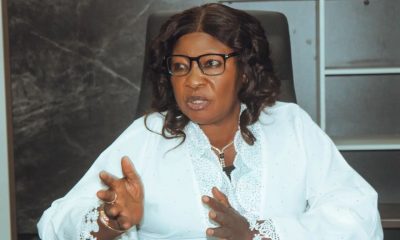

BREAKING: The Head of Service of the Federal Capital Territory (FCT), Grace Adayilo is dead
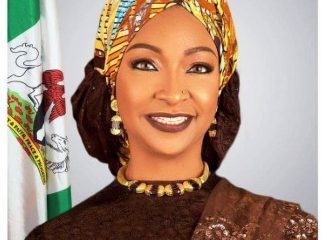

Nigeria, Switzerland begin talks on artefact repatriation and cultural cooperation


El-Rufai rules out 2027 ambition, Says He’s back to mentor youth, Support credible leadership


NMDPRA – Nigerians spend N1.3tn on petrol in June amid soaring energy costs


Pastor Adefarasin: Nigeria was born of British greed, Not God’s design
Trending
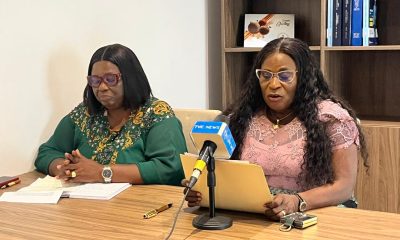
 Latest1 week ago
Latest1 week agoTwo more Rivers lawmakers call for halt to Fubara impeachment
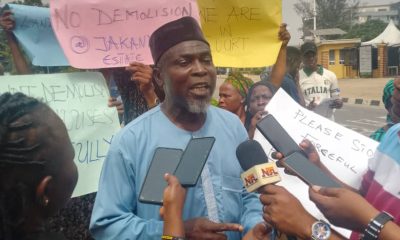
 News1 week ago
News1 week agoJakande Estate residents allege illegal demolition, tasks Sanwo-Olu

 Business7 days ago
Business7 days agoRising fuel costs, policy push signal EV boom in Nigeria as industry predicts 2026 takeoff

 Business1 week ago
Business1 week agoNCC engages PwC to conduct comprehensive competition review of Nigeria’s telecoms sector

 Latest1 week ago
Latest1 week agoKwankwaso tells NNPP members to discreetly sign defection forms amid Kano APC shift

 Education1 week ago
Education1 week agoFG, ASUU sign landmark agreement to stabilize Nigerian university system

 Business6 days ago
Business6 days agoNigeria misses OPEC quota for fifth month as crude output dips in December

 Football1 week ago
Football1 week agoAFCON 2025: Nigeria, Morocco clash in high-stakes semi-final as title race intensifies

